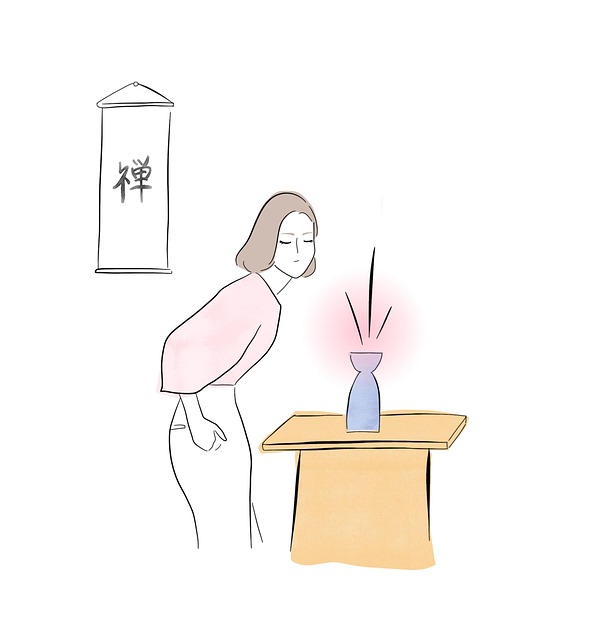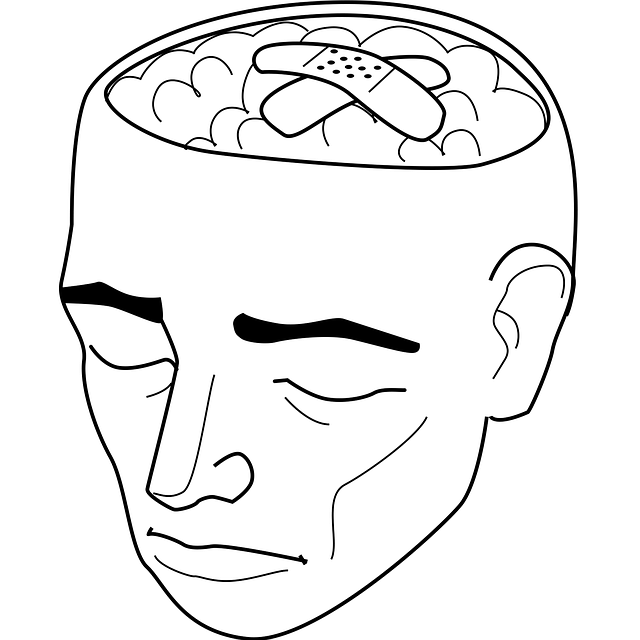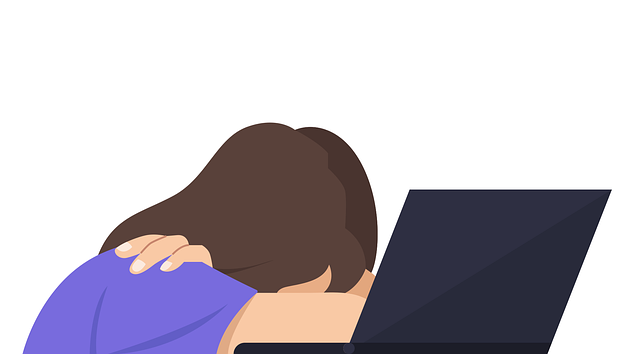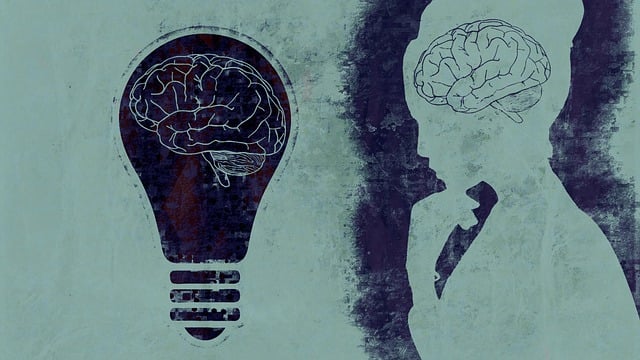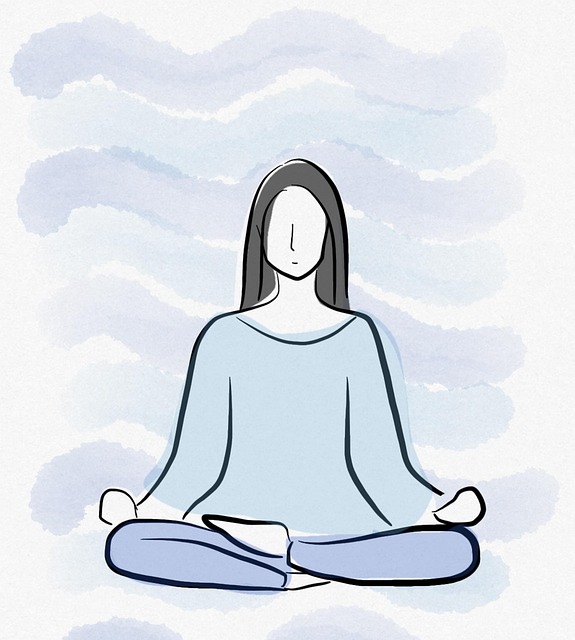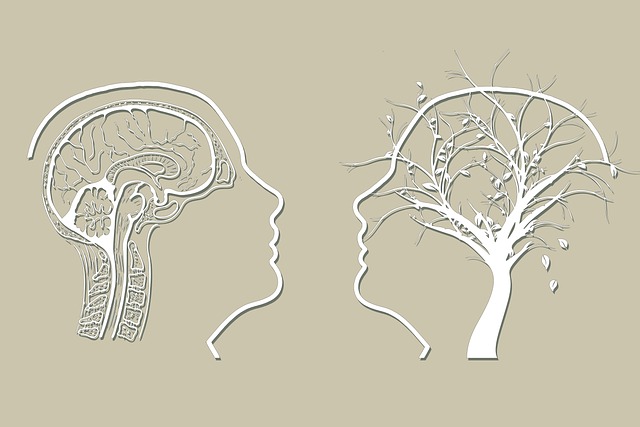Anxiety among young adults, fueled by life transitions and pressures, damages self-esteem and well-being. Cognitive Behavioral Therapy (CBT) targets negative thought patterns, builds resilience, and enhances mental health awareness. Compassion cultivation practices promote kindness towards oneself, preventing depression. A holistic approach to anxiety management includes lifestyle adjustments, structured self-care routines, and building supportive communities, all crucial for effective therapy for young adults' self-esteem.
“Anxiety among young adults is a prevalent issue, but managing it effectively can empower individuals to lead fulfilling lives. This comprehensive guide explores various strategies to combat anxiety and enhance self-esteem, particularly focusing on Cognitive Behavioral Therapy (CBT) and mindfulness techniques. By understanding the causes and impact of anxiety on young adults’ self-worth, we uncover practical lifestyle adjustments and the importance of support systems. Discover how these tools can foster resilience and promote a healthier mental state.”
- Understanding Anxiety in Young Adults: Unraveling the Causes and Impact on Self-Esteem
- Cognitive Behavioral Therapy (CBT): A Powerful Tool for Managing Anxiety and Boosting Self-Confidence
- Mindfulness and Meditation Practices to Calm the Anxious Mind
- Lifestyle Adjustments and Support Systems: Fostering a Positive Environment for Overcoming Anxiety
Understanding Anxiety in Young Adults: Unraveling the Causes and Impact on Self-Esteem

Anxiety among young adults is a prevalent issue that can significantly impact their self-esteem and overall well-being. This period of life, often characterized by significant transitions and increased responsibilities, can be a breeding ground for anxiety disorders. The pressure to succeed academically, professionally, or socially, coupled with the inherent uncertainty of adolescence, may trigger feelings of unease and worry.
The consequences of prolonged anxiety on self-esteem are profound. Individuals may develop negative self-perceptions, questioning their abilities and worth. This can lead to avoidance behaviors, where young adults shy away from opportunities that might challenge their anxious thoughts, hindering personal growth and development. Effective therapy for young adults, such as cognitive-behavioral therapy (CBT), can help unravel the complex web of anxiety and its root causes. CBT encourages individuals to challenge negative thought patterns and engage in activities that foster self-esteem improvement, ultimately promoting resilience and coping strategies to manage anxiety symptoms. Additionally, compassion cultivation practices have shown promise in preventing depression and enhancing overall mental health by teaching individuals to cultivate kindness towards themselves and others.
Cognitive Behavioral Therapy (CBT): A Powerful Tool for Managing Anxiety and Boosting Self-Confidence

Cognitive Behavioral Therapy (CBT) has emerged as a highly effective therapy for young adults grappling with anxiety, offering a powerful tool to manage symptoms and boost self-confidence. This evidence-based approach focuses on identifying and challenging negative thought patterns and behaviors that contribute to anxiety disorders. By fostering self-awareness exercises, CBT empowers individuals to recognize distorting cognitive processes and replace them with healthier, more realistic thoughts, leading to improved emotional well-being.
One of the key advantages of CBT is its ability to enhance mental health awareness, enabling young adults to develop effective coping strategies for managing anxiety in their daily lives. Moreover, it provides valuable trauma support services by helping individuals process and overcome past traumatic experiences that may be contributing factors to their current anxiety. Through structured sessions with a qualified therapist, CBT equips young adults with the skills needed to navigate challenging situations, fostering resilience and boosting self-esteem.
Mindfulness and Meditation Practices to Calm the Anxious Mind

Mindfulness and meditation practices have emerged as powerful tools for managing anxiety, particularly in young adults navigating life’s challenges. These ancient techniques encourage individuals to focus on the present moment, cultivating a sense of calm and clarity that can effectively counterbalance anxious thoughts. By training their minds to observe thoughts without judgment, individuals can develop a deeper understanding of their anxiety triggers and patterns, fostering self-awareness and self-acceptance.
Incorporating mindfulness into daily routines, such as mindful breathing exercises or body scans, helps to regulate emotional responses and enhance overall well-being. This form of therapy for young adults can significantly improve self-esteem and resilience, empowering individuals to better manage stress and anxiety in their personal and professional lives. Moreover, combining these practices with social skills training and advocacy efforts within mental health policy analysis can create a holistic support system, promoting emotional healing processes and fostering a sense of community among those seeking to overcome anxiety.
Lifestyle Adjustments and Support Systems: Fostering a Positive Environment for Overcoming Anxiety

Anxiety management often involves more than just therapy; it encompasses a holistic approach to well-being. For young adults, fostering a supportive environment is key to overcoming anxiety. Lifestyle adjustments play a significant role in mental health. Encouraging regular exercise, balanced diets, and adequate sleep can help reduce anxiety symptoms. Establishing a structured self-care routine, including practices like meditation or journaling, empowers individuals to take control of their mental state.
Building a strong support system is another critical aspect. Connecting with friends, family, or support groups provides a sense of belonging and understanding. Community outreach programs and mental health advocacy initiatives can further enhance this network by offering resources and platforms for sharing experiences. By combining these strategies, young adults can create an environment that promotes healing and boosts self-esteem, ultimately facilitating effective therapy for anxiety management.
Anxiety management is a multifaceted journey, especially for young adults navigating life’s challenges. By understanding the root causes and their impact on self-esteem, individuals can empower themselves with effective tools. Cognitive Behavioral Therapy (CBT) offers a structured path to challenge negative thought patterns and boost confidence. Complementing CBT are mindfulness practices that teach individuals to remain calm in the face of anxiety. Lifestyle adjustments and supportive networks play pivotal roles in fostering an environment conducive to overcoming anxiety. With the right combination of therapy, self-care, and social support, young adults can effectively manage their anxiety and cultivate a stronger sense of self-esteem.


